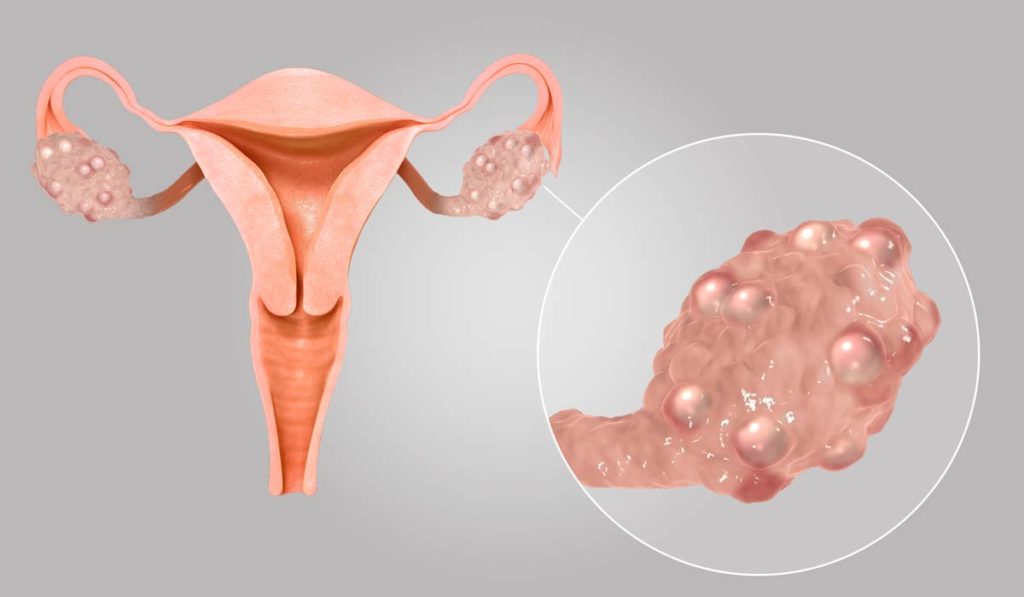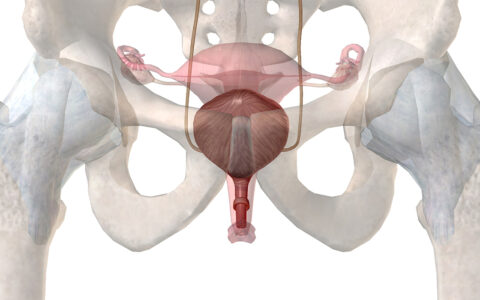A recent analysis of data from the CARDIA (Coronary Artery Risk Development in Young Adults) study shows that women with polycystic ovary syndrome (PCOS) exhibit more symptoms of depression than women without PCOS. Black women scored higher on these behavioral traits than white women, with a consistent spread between the races as the women aged. Women with PCOS have a higher risk for diabetes and cardiovascular disease, making them a population of interest in the CARDIA study.
Melissa Wellons, M.D., an endocrinologist with Vanderbilt University Medical Center, is an author on the study published in the Journal of Clinical Endocrinology and Metabolism. Wellons began researching PCOS as an outgrowth of her specialization in women’s risk for cardiovascular disease. She runs a PCOS clinic at Vanderbilt in collaboration with Michelle Roach, M.D., a specialist in reproductive endocrinology and fertility.
Wellons says that Vanderbilt’s PCOS clinic offers holistic treatment as well as an ingredient that is often in short supply: empathy. “I think many women go to their OB/GYN to just address infertility or unwanted hair, for example. Who is looking at the impact that the syndrome has on their life as a whole?”
Associated Health and Self-Esteem Issues
PCOS is a condition where the ovaries do not ovulate predictably. They, and sometimes the adrenal glands, may produce an overabundance of male hormones. Symptoms like irregular menses, unwanted hair growth, acne and insulin resistance are common.
Women with the disorder often struggle with reproductive problems and also with self-esteem issues from the cosmetic manifestations. In addition, women with PCOS are predisposed to accumulate excess visceral fat in their midsection and have a two-fold higher risk of diabetes and dyslipidemia, independent of weight and BMI.
“These patients need to minimize further accumulation of this fat, not only so they can ovulate but so they can process glucose maximally and avoid the development of diabetes.”
“These patients need to minimize further accumulation of this fat, not only so they can ovulate but so they can process glucose maximally and avoid the development of diabetes,” Wellons said. Many factors make weight control difficult for women with PCOS – the most addressable are eating past the point of fullness, a low-quality diet, and eating for emotional reasons, including depressive symptoms.
New Evidence of Mood Disparity
Over 30 years, the participant retention rate of the CARDIA cohort has been an impressive 85 percent. Of the 1,127 CARDIA women assessed for PCOS, 83 (about seven percent) were identified as having PCOS. Forty percent of these women were black, 60 percent white.
All participants completed the Center for Epidemiologic Studies Depression (CES-D) survey to score depression symptoms (e.g. restless sleep, loss of appetite, feeling lonely) every five years, beginning in year five of the study. Women with PCOS scored approximately three points higher on the survey than women without PCOS. Black women had higher depression scores than white women, whether or not they had PCOS.
Holistic Care
While these results may sound discouraging, Wellons sees much of the data from the CARDIA study as hopeful. In all women, depression scores improved over time and with greater education on the condition. “Laughter is good medicine as we all know – and I have often semi-jokingly told patients my goal is to give them a Ph.D. in PCOS,” Wellons said. “Having this CARDIA data helps me see if education and treatment can bend the depressive symptom curve more rapidly and steeply downward.”
While treatment options for PCOS have not improved markedly in recent years, Wellons says the evidence supporting some medications over others has strengthened. Clomiphine or letrozole are well-studied and most widely used to promote ovulation and pregnancy. Birth control pills and spironolactone are used for addressing unwanted hair, hair loss, acne and other effects of excess androgen and testosterone. Metformin is often given to stave off diabetes.
Wellons urges women with PCOS to seek a setting where their various morbidities are addressed together. “Women stand to benefit from a clinical setting that integrates dermatology and medical weight loss groups for more comprehensive care.”
“Women stand to benefit from a clinical setting that integrates dermatology and medical weight loss groups for more comprehensive care.”





